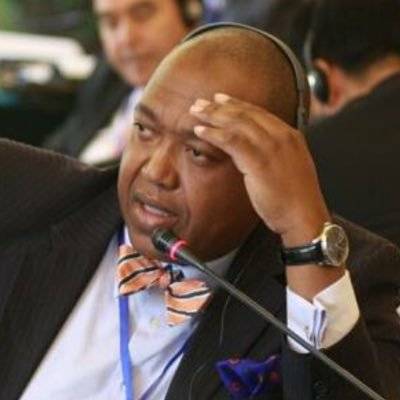The long awaited Hamas Charter was unveiled in Doha, Qatar, on Monday. The document has presented a number of policy shifts from the movement’s long held political positions. The recognition of the 1967 border as the framework for the future Palestinian state, although transitional, represents the acceptance by Hamas of a two-state solution. This has brought a convergence between the political parties in Palestine.
The packed press conference was addressed by Khaled Meshaal the outgoing head of Hamas’ political bureau. Besides the policy changes, Hamas is also in the process of electing its new leadership. The expectations, therefore, were that the new leadership would present the new policy instead of Meshaal. Why did Meshaal present the policy document on the eve of his exit as the leader of the movement? Was it a way of cementing a continued political legacy or was it a soft launch of his next role in Palestinian politics?
Meshaal has steered Hamas over decades of challenging political upheavals. The assassinations of Sheikh Ahmed Yassin on 22 March 2004 and a month later the assassination of Dr Abdelaziz Rantisi were some of the most challenging times for Hamas. It was during that time that Meshaal demonstrated leadership qualities and established himself as the “unrivaled leader” of the movement. Perhaps the most important test of his tenure was the 2007 decision to crush the attempt by Fatah operatives to overthrow the elected Hamas-led administration in Gaza after they won the 2006 elections.
Read: Hamas outlines its vision for Palestine in the 21st century
The ensuing separation of Gaza remains a thorny issue and one of the most important milestones in Palestinian political history. Furthermore, the decision to relocate Hamas’ seat of power from Damascus to Doha immediately after the start of the Syrian crisis was another test of Meshaal’s leadership. Notwithstanding the challenges, Meshaal’s charm and accessibility have continued to improve the image of Hamas across the world. He has given a number of important media interviews with several international and regional media organisations dispelling a host of myths about Hamas.
![Hamas leaders Abdel Aziz Al-Rantisi (L) and Sheikh Ahmed Yassin (R) both were assassinated by Israel [Qassa.ps]](https://i0.wp.com/www.middleeastmonitor.com/wp-content/uploads/2017/05/Rantisi_Yassin.jpg?resize=405%2C230&ssl=1)
Hamas leaders Abdel Aziz Al-Rantisi (L) and Sheikh Ahmed Yassin (R) both were assassinated by Israel [Qassa.ps]
Subsequently, the South African government and civil society launched a number of initiatives aimed at trying to bring about a political solution between Israel and Palestine. There are many similarities in the conflict between Israel-Palestine and South Africa. South African apartheid used religious justifications to subjugate and oppress the majority black Africans. It used anthropological propaganda justifications about the origins of the majority black people of South Africa in order to render the majority of blacks as immigrants in their own lands. They also claimed to have “found an empty land without people, for people without land” when they landed in the shores of South Africa.
Read: Hamas’ acceptance of 1967 borders is impractical
These are similar myths used by successive Israeli governments to justify Israel’s existence and occupation of Palestine. In fact, the political manifestations in Israel tend to mimic those of apartheid South Africa. This includes job and residential reservation laws, restrictions on people’s movement, imprisonment without trial, religious and racial discrimination and systematic displacement of people. The South African political trajectory and settlement appears to have all the elements that make its political option a possible panacea to the Israeli-Palestine conflict.
In 1994, South Africa achieved the impossible. Those achievements elevated South Africa to a new status in the international arena. South Africa is still battling racism and the huge economic gap between blacks and whites remains as wide as before. White people in South Africa remain relatively wealthy and affluent whilst the majority of blacks are still poor.
However, what makes apartheid South Africa and the South Africa of Nelson Mandela so different from each other was the quality of the leadership. Mandela understood the “urgency of now” he was not blinded by the immediacy of settling historical scores. Yet the South African political miracle was not solely as a result of Mandela’s doing. Ordinary South Africans also played a role; their love for land and country, and their realisation that it has to be shared amongst all who live in it, contributed to the political settlement.
South Africans rejected the Bantustanisation of their country, i.e. the fragmentation of South Africa into small “countries” for different people. They refused to live in a geographically fragmented country. The agreement reached between all parties during the negotiation process in South Africa was that of a non-racial and united South Africa. In hindsight, it has proven to be a key to the success of the country. The continued employment of political mechanisms to address past injustices and inequalities will also facilitate the success of South Africa’s ambitious political project. The South African political experience could indeed assist in solving the historical political stalemate in Israel-Palestine. After all, the South Africans understood that short-term political fixes could never guarantee future political stability.
The views expressed in this article belong to the author and do not necessarily reflect the editorial policy of Middle East Monitor.


![Chairman of the Hamas Political Bureau, Khaled Meshaal (C) expresses a new vision and policy of Hamas in Doha, Qatar on 1 May, 2017 [Ahmed Youssef Elsayed Abdelrehim/Anadolu Agency]](https://i0.wp.com/www.middleeastmonitor.com/wp-content/uploads/2017/05/205_5_7-Jordanian-Armed-Forces20170501_2_23407326_21621033.jpg?fit=1200%2C800&ssl=1)










